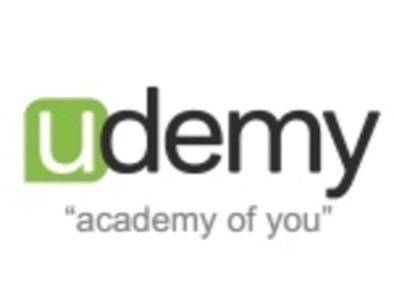“Five years from now on the web for free you’ll be able to find the best lectures in the world,” Bill Gates said at the recent Techonomy conference, arguing that online education will be “better than any single university.” Gates’s timeline might be debatable – could be ten years, five years, three years, now – as is his contention that the widespread availability of online lectures means we can supplant a brick-and-mortar school. But there’s little doubt that more and more learning experiences and learning resources are available online. And more and more students, including Gates himself, are pursuing their coursework via the Internet.

But online learning is only half the picture. And while that may in itself change how we think of education, the other half is online teaching. How will Web technologies alter how we teach, what we teach, and who teaches?
Democratizing Online Learning with Udemy
In that spirit, Udemy is a website that seeks to “democratize online learning” by providing the tools so that educators can easily create their own online courses. Udemy announces today that is has raised $1 million from a number of prominent angel investors, including Keith Rabois, Naval Ravikant, and Dave McClure’s 500 Startups Fund – a successful round that Udemy co-founder Gagan Biyani notes came with help from both the Founder Institute where the startup was incubated and from VentureHacks’ AngelList. The funding will go, in part, to hire more engineers for the site.
Launched in May, Udemy has had over 1000 instructors create over 2000 courses, on topics from Introduction to Chemical Engineering to Thai Cooking Lessons. The site has reached almost 10,000 registered users and Biyani boasts of an “extremely active and passionate community of instructors.” Udemy provides instructors a platform to easily upload presentations and videos, as well as write blog posts.
Earlier this month, Udemy also unveiled Udemy Academic, the largest repository of open source courseware on the internet, featuring courses from 18 institutions, including UC Berkeley, MIT, Stanford, UCLA, Yale, Columbia, and Khan Academy.
Biyani says Udemy is “a content site more than it is an education site,” but thinks that a changing landscape – in terms of shrinking budgets and growing acceptance of online video – has really created lots of opportunities for entrepreneurship around online learning. How Udemy will fare against other competitors – not just eduFire, but YouTube – remains to be seen, but the site has seen strong adoption thus far, and today’s investment announcement is another endorsement.


















